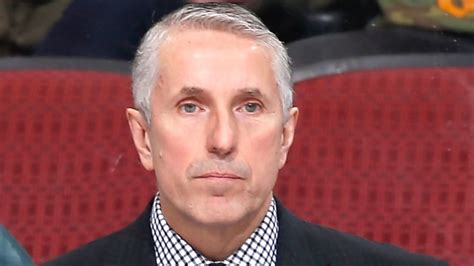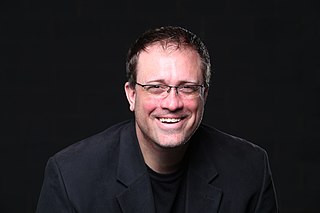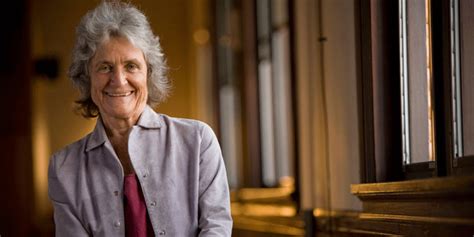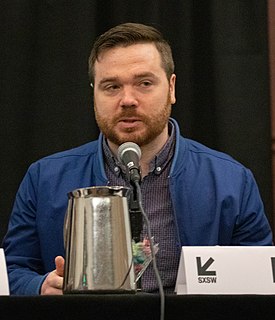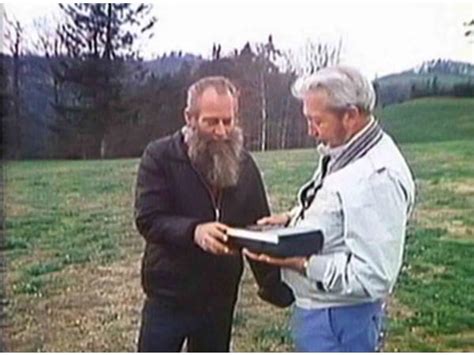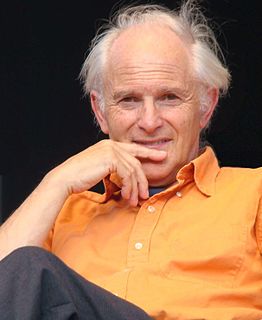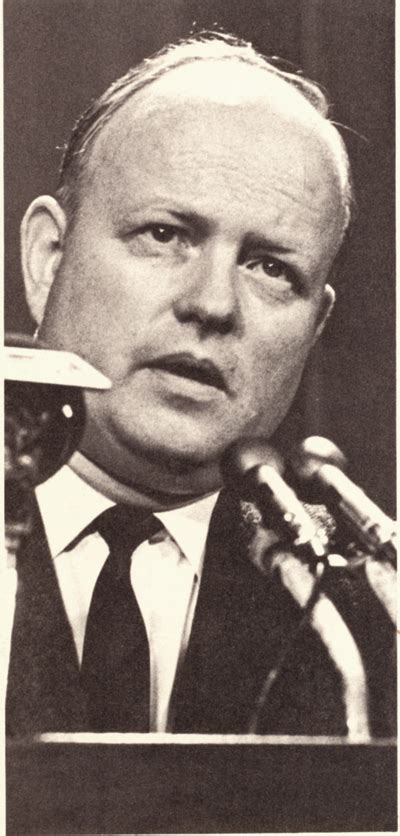Top 635 Classroom Quotes & Sayings - Page 11
Explore popular Classroom quotes.
Last updated on December 22, 2024.
Furthermore, we believe that health care reform, again I said at the beginning of my remarks, that we sent the three pillars that the President's economic stabilization and job creation initiatives were education and innovation - innovation begins in the classroom - clean energy and climate, addressing the climate issues in an innovative way to keep us number one and competitive in the world with the new technology, and the third, first among equals I may say, is health care, health insurance reform.
Teaching, like any truly human activity, emerges from one's inwardness, for better or worse. As I teach I project the condition of my soul onto my students, my subject, and our way of being together. The entanglements I experience in the classroom are often no more or less than the convolutions of my inner life. Viewed from this angle, teaching holds a mirror to the soul. If I am willing to look in that mirror and not run from what I see, I have a chance to gain self-knowledge-and knowing myself is as crucial to good teaching as knowing my students and my subject.
The Lordship of Jesus Christ is not quite forgotten among Christians, but it has been relegated to the hymnal where all responsibility toward it may be comfortably discharged in a glow of religious emotion. Or if it is taught as a theory in the classroom it is rarely applied to practical living. The idea that the Man Christ Jesus has absolute final authority over the whole church and over its members in every detail of their lives is simply not now accepted as true by the rank and file of evangelical Christians.
The poet dreams of the classroom I dreamed I stood up in class And I said aloud: Teacher, Why is algebra important? Sit down, he said. Then I dreamed I stood up And I said: Teacher, I’m weary of the turkeys That we have to draw every fall. May I draw a fox instead? Sit down, he said. Then I dreamed I stood up once more and said: Teacher, My heart is falling asleep And it wants to wake up. It needs to be outside. Sit down, he said.
The first book by an African American I read was Carl T. Rowan's memoir, Go South to Sorrow. I found it on the bookshelf at the back of my fifth-grade classroom, an adult book. I can remember the quality of the morning on which I read. It was a sunlit morning in January, a Saturday morning, cold, high, empty. I sat in a rectangle of sunlight, near the grate of the floor heater in the yellow bedroom. And as I read, I became aware of warmth and comfort and optimism. I was made aware of my comfort by the knowledge that others were not, are not, comforted. Carl Rowan at my age was not comforted.
Actually, I started as a ventriloquist and my music teacher said, "Why don't you emcee the talent show?" My act was out of the back of Boys' Life magazine-they had a whole series of jokes in the back of Boys' Life magazine for Boy Scouts. So my act was jokes with my ventriloquist figure, and it was really bad, but I walked into the classroom afterward and the kids went, "Wow, you're cool." I wasn't cool at all, but I thought, "Well, this is a pretty good deal."
Democratic politicians want to solve the crisis of poor education by taking more of your money and using it to reduce classroom sizes in the government schools. Republican politicians want to solve the crisis by taking more of your money to provide vouchers to a handful of the poorest students in each area, paying for a part of the tuition expense at private schools. But before long this 'reform' would make those private schools indistinguishable from the government schools ... Vouchers are an excellent way for the government to increase control over private schools.
Whether we're fighting climate change or going to space, everything is moved forward by computers, and we don't have enough people who can code. Teaching young people to code early on can help build skills and confidence and energize the classroom with learning-by-doing opportunities. I learned how to fly a hot air balloon when I was 30,000 feet up and my life was in the balance: you can learn skills at any age but why wait when we can teach everyone to code now!
...in the eyes of her oldest friends and colleagues and extended family, she wasn't a painfully thin seventy-five-year-old gray haired woman dying of cancer- she was a grade school class president, the young friend you gossiped with, a date or double date, someone to share a tent with in Darfur, a fellow election monitor in Bosnia, a mentor, a teacher you'd laughed within a classroom or a faculty lounge, or the board member you'd groaned with after a contentious meeting
True majorities, in a TV-dominated and anti-intellectual age, may need sound bites and flashing lights and I am not against supplying such lures if they draw children into even a transient concern with science. But every classroom has one [Oliver] Sacks , one [Eric] Korn, or one [Jonathan] Miller , usually a lonely child with a passionate curiosity about nature, and a zeal that overcomes pressures for conformity. Do not the one in fifty deserve their institutions as well magic places, like cabinet museums, that can spark the rare flames of genius?
Traditional education focuses on teaching, not learning. It incorrectly assumes that for every ounce of teaching there is an ounce of learning by those who are taught. However, most of what we learn before, during, and after attending schools is learned without its being taught to us. A child learns such fundamental things as how to walk, talk, eat, dress, and so on without being taught these things. Adults learn most of what they use at work or at leisure while at work or leisure. Most of what is taught in classroom settings is forgotten, and much or what is remembered is irrelevant.
At school, our classroom had a small rodent zoo consisting of two rabbits, three hamsters, a litter of baby gerbils and a guinea pig. At first, I’d thought the teacher was raising snack food, which impressed me, being the first sign of intelligence she’d shown. Soon, though, I’d figured out the animals’ true purpose and left them alone, though I would never understand the appeal of petting and coddling perfectly good food.
What are you doing here? Tell me why you are here. If you are not here to win a national championship, you're in the wrong place. You boys are special. I don't want my players to be like other students. I want special people. You can learn a lot on the football field that isn't taught in the home, the church, or the classroom. There are going to be days when you think you've got no more to give and then you're going to give plenty more. You are going to have pride and class. You are going to be very special. You are going to win the national championship for Alabama.
The Next Chapter in the Book of Hope: "Gaining New Hope Hearing Aids" As I was with the Lord in the "Classroom of Useful Information," the Lord began to share from the second chapter of the "Book of Hope." This chapter taught about the right, hopeful "Hearing Aids" that would enable His Hope Craftsmen to hear His voice and become a company of hopeful Kingdom hearers.
I often notice how students can gain the capacity to use certain critical methodologies through engaging with very different texts - how a graphic novel about gentrification and an anthology about Hurricane Katrina and a journalistic account of war profiteering might all lead to very similar classroom conversations and critical engagement. I'm particularly interested in this when teaching law students who often resist reading interdisciplinary materials or materials they interpret as too theoretical.
I'll show up at every classroom open house and teacher conference,' she said, now in a voice that was almost frightening in its intensity. 'I'll bake brownies. My child will have new clothes. Her shoes will fit. She'll get her shots, and she'll get her braces. We'll start a college fund next week. I'll tell her I love her every damn day.' If that wasn't a great plan for being a good mother, I couldn't imagine what a better one could be
Where suspicion fills the air and holds scholars in line for fear of their jobs, there can be no exercise of the free intellect. Supineness and dogmatism take the place of inquiry. A problem can no longer be pursued to its edges. Fear stalks the classroom. The teacher is no longer a stimulant to adventurous thinking; she becomes instead a pipe line for safe and sound information. A deadening dogma takes the place of free inquiry. Instruction tends to become sterile; pursuit of knowledge is discouraged; discussion often leaves off where it should begin.
So you think the best way to prepare kids for the real world is to bus them to a government institution where they're forced to spend all day isolated with children of their own age and adults who are paid to be with them, placed in classes that are too big to allow more than a few minutes of personal interaction with the teacher-then spend probably an hour or more everyday waiting in lunch lines, car lines, bathroom lines, recess lines, classroom lines, and are forced to progress at the speed of the slowest child in class?
What I have learned from the teachers with whom I have worked is that, just as there is no simple solution to the arms race, there is no simple answer to how to work with children in the classroom. It is a matter of being present as a whole person, with your own thoughts and feelings, and of accepting children as whole people, with their own thoughts and feelings. It's a matter of working very hard to find out what those thoughts and feelings are, as a starting point for developing a view of a world in which people are as much concerned about other people security as they are about their own
With the states release today of a set of clear and consistent academic standards, our nation is one step closer to supporting effective teaching in every classroom, charting a path to college and careers for all students, and developing the tools to help all children stay motivated and engaged in their own education. The more states that adopt these college and career based standards, the closer we will be to sharing innovation across state borders and becoming more competitive as a country.
In some of the classes, especially the introductory religion courses I took, the professors can veer into a particular strain of religious anti-intellectualism. Professors typically aren't given tenure at Liberty, so there's pressure to hew to the party line on religious and social issues. I didn't see a whole lot of my professors encouraging critical thinking among their students. Which isn't to say that students don't engage critical thinking skills at Liberty - just that it wasn't part of my classroom experience there.
The most successful teachers in low-income communities operate like successful leaders. They establish a vision of where their students will be performing at the end of the year that many believe to be unrealistic. They invest their students in working harder than they ever have to reach that vision, maximise their classroom time in a goal-oriented manner through purposeful planning and effective execution, reflect constantly on their progress to improve their performance over time, and do whatever it takes to overcome the many challenges they face.
Everyone who comes in is just amazed that our children do not have the animosity, the hatred, because these children are into it. You know, once you learn to like yourself, then you don't see this black-white bit. I still say that a good basic education is the only thing. I feel guilty sometimes because I don't think Jesus Christ could get any more accolades than I do when I walk through that classroom, even from the children I do not teach. They know that I love them, but I am forever telling them, "Get into that seat so you can have choices in this world."
I think my philosophy has evolved over the years. I started teaching almost 15 years ago and I've learned that how one student learns is obviously much different than how another student learns and so I've had to figure out how to get through to people honestly without hurting their feelings - which is no easy task just in the scope of being a human being, much less in the classroom, but which is something that is more important to me now than it was when I was 30 - and to show them a path to improving.
We have a dangerous trend beginning to take place in our education. We're starting to put more and more textbooks into our schools. We've become accustomed of late of putting little books into the hands of children, containing fables and moral lessons. We're spending less time in the classroom on the Bible, which should be the principal text in our schools. The Bible states these great moral lessons better than any other man-made book.
Oh, that,' said Ginny, giggling. 'Well-Percy's got a girlfriend.' Fred dropped a stack of books on George's head. 'What?' 'It's that Ravenclaw prefect, Penelope Clearwater,' said Ginny. 'That's who he was writing to all last summer. He's been meeting her all over the school in secret. I walked in on them kissing in an empty classroom one day. He was so upset when she was-you know-attacked. You won't tease him, will you?' she added anxiously. 'Wouldn't dream of it,' said Fred, who was looking like his birthday had come early.
If you wanted to create an education environment that was directly opposed to what the brain was good at doing, you probably would design something like a classroom. If you wanted to create a business environment that was directly opposed to what the brain was good at doing, you probably would design something like a cubicle. And if you wanted to change things, you might have to tear down both and start over.
I don't have an issue with what you do in the church but I'm going to be up in your face if you're going to knock on my science classroom and tell me I got to teach what you're teaching in your Sunday school. That's when we're going to fight... There's no tradition of scientists knocking down the Sunday school door, telling the preacher 'that might not necessarily be true.' That's never happened. There are no scientists picketing out front of churches. There's been this coexistence forever, so to have religious communities knocking down the science door, there's something wrong there.
How would you like your child in kindergarten through 12th grade attending classes with kids who can't read, write, speak or understand English -- or American education values? Furthermore, how would you feel if those students felt zero investment in education, in English and the American way? How would you like your child's education dumbed down to that of a classroom from the Third World? Guess what? Today, if you're a parent of a child in thousands of classrooms across America, that's what's happening to your children with your tax dollars.
I, like almost all chemists I know, was also attracted by the smells and bangs that endowed chemistry with that slight but charismatic element of danger which is now banned from the classroom. I agree with those of us who feel that the wimpish chemistry training that schools are now forced to adopt is one possible reason that chemistry is no longer attracting as many talented and adventurous youngsters as it once did. If the decline in hands-on science education is not redressed, I doubt that we shall survive the 21st century.
While you are walking you would learn much more about filmmaking than if you were in a classroom. During your voyage you will learn more about what your future holds than in five years at film school. Your experiences would be the very opposite of academic knowledge, for academia is the death of cinema. It is the very opposite of passion.
Fundamentals might be good for the first third or first 50 or 60 percent of a move, but the last third of a great bull market is typically a blow-off, whereas the mania runs wild and prices go parabolic... There is no training, classroom or otherwise, that can prepare for trading the last third of a move, whether it's the end of a bull market or the end of a bear market.
The family endures because it offers the truth of mortality and immortality within the same group. The family endures because, better than the commune, kibbutz, or classroom, it seems to individualize and socialize its children, to make us feel at the same time unique and yet joined to all humanity, accepted as is and yet challenged to grow, loved unconditionally and yet propelled by greater expectations. Only in the family can so many extremes be reconciled and synthesized. Only in the family do we have a lifetime in which to do it.
I believe that coaches and athletes should realize that the athletic department field, court or diamond can be made an extension of the classroom, a place where you and your teammates are learning more than just how to prepare to win. The field, the court, and the diamond should be places where athletes are constantly learning about the game in which they participate, about their coaches and teammates, and perhaps most importantly, about themselves.
Since her retirement from teaching Miss Beryl's health had in many respects greatly improved, despite her advancing years. An eighth-grade classroom was an excellent place to snag whatever was in the air in the way of illness. Also depression, which, Miss Beryl believed, in conjunction with guilt, opened the door to illness. Miss Beryl didn't know any teachers who weren't habitually guilty and depressed-guilty they hadn't accomplished more with their students, depressed that very little more was possible.













